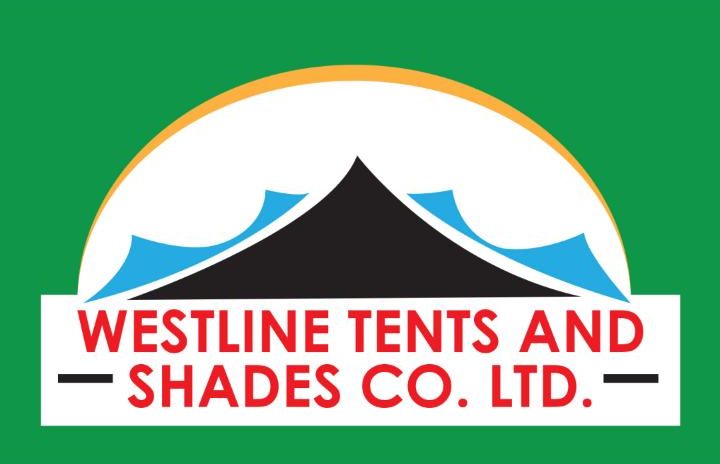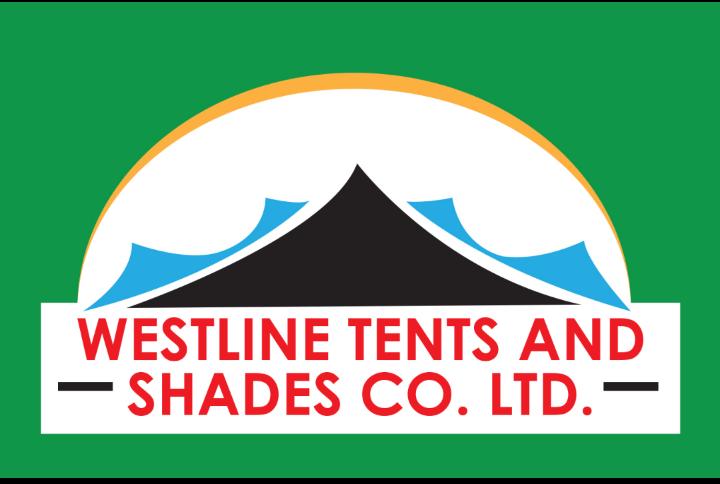With the increase of wedding events, camping events, concerts and events management companies in Uganda, there’s a high demand for tents to put up weddings, concerts, camps, warehouses, schools, etc.
Even with the boom in the tent industry, many tents businesses close within the first five years of business because of a lack of business knowledge, finances, and planning.
To operate a successful business, you need to have a good start. How you start your business will affect the longevity and profitability of your tent business.
Here’s how to start your tent manufacturing business.
Carry out market research.
Before you invest in your business, study your target market and find out if its viability.
Study your potential customers and competitors. Your findings will equip you with how to execute your strategy and make an informed business plan.
The two leading players in a market.
Competition.
How many other tent manufacturing businesses are in your area?
What is their specialty?
What are their prices/quotations?
What is their reputation?
Potential customers.
How many are they?
What is their average age?
What is their marital and social status?
What are their interests/ tastes/ preferences?
How often do they buy tents in your category?
What are the challenges they face with their tent manufacturers?
What do they look for when hiring tents manufacturers?
The answers you get in your market research will help you know your business viability in that specific location and help you decide whether to start up your business there or not.
Write your business plan.
After carrying out successful market research, write up your business plan.
It is the foundation of your tent manufacturing business. It lays out how your company will operate and grow. It also helps investors know how you plan to run the company and how you expect to make money and deal with the challenges that come your way.
Your simple business plan should include;
How you’ll organize and manage your business
The services you’ll provide.
The kind of jobs you’ll bid.
Your target market.
The number of employees you’ll start with.
The initial cost of starting and maintaining your tent manufacturing business.
The expected profit in your first year of business.
Your Key Performance Indicators.
The Accounting processes you’ll use, e.g., the billing method (whether you’ll use fixed lump sum price or a time and material breakdown), if you will offer discounts, etc.
Your business cannot succeed without a business plan. A business plan helps you know the why, the how, the when, and the where of starting your business.
Get Good Business Advice.
Always draw up your business plan after understanding your business and local market.
Seek business advice from experts and knowledgeable people in the tent manufacturing business. Their insights will help you improve your business plan and approach.
Fully register your business.
Visit the Uganda Registration Service Bureau (URSB) and make your business a legal entity.
You can register your company as;
A sole proprietorship: A business where you are the only owner with total control of your business.
A partnership: Where you and one or more people own the business. One partner will have to be a general partner with unlimited liability, and the rest will have limited liability.
A limited company or partnership: Where all members or partners have limited liability. Limited liability separates and protects your personal assets from your business’ assets and liabilities.
Choose and reserve a business name.
A name identifies a business.
Take reasonable care when choosing your business name because a name can lead a company to success or failure.
Make sure that no other business has ever used your chosen name.
Apply for your name reservation at the Uganda Registration Service Bureau (URSB), pay a fee, and fill in the company name assessment forms.
The URSB will enter your suggested business name into its registry database, and once it does not match any other name, it will reserve it for you for 30 days.
Register your company.
After reserving your business name, file the following documents with the Registrar of companies.
Companies Registration Form
Memorandum of Association
Articles of Association,
Other Company forms like the Statement of Nominal Capital (A1)
When all the documents are ready, pick assessments forms from the URSB offices or do a self-assessment.
Pay registration fees and stamp duty.
After successful registration, the Registrar will issue you a Certificate of Incorporation within two working days.
After registration of your tent manufacturing business, you must file the following documents;
Company Form 20 (Particulars of Directors and Secretaries- within 14 days)
Company Form 18 (Notice of Situation of Registered Office and Postal Address- within 14 days)
Company Form 10 (Return of allotment-within 60 days)
Annual Return Form for a company limited by shares- filed once every year)
Register for a Tax Identification Number (TIN).
You need a TIN to pay your company taxes.
Registering for a TIN can be done in two ways:
Applying online through the Uganda Revenue Authority portal
Visiting any URA offices and fill in the forms.
The application process is free of charge.
Register with the NSSF (National Social Security Fund)
If your company starts with more than five employees, it must register with the NSSF and pay 10% of the employees’ wages to their NSSF accounts.
Get licensed to work.
Every industry has specific requirements that a business must meet to operate. After fulfilling these requirements, the city authority gives you a license to operate lawfully. The most common license in Uganda is the trading license.
Trading License.
A municipal authority awards you a trading license that allows you to operate within its city limits. The Kampala Capital City Authority (KCCA) is your trade licensing authority if your business is in Kampala.
The licensing fee depends on the size of your company, the location of your business, and sometimes the type of tents you do.
Grade I-750,000
Grade II-525,000
Grade III- 300,000
Grade IV- 210,000
Requirements;
Original certificate of registration (Business name)
Or Certificate of Incorporation
Original rent and tenancy agreement from the landlord.
A trading license is processed within two days and is valid for a year.
Without a license, your business might face;
Tax penalties
Additional Fees
Closure
Insure your business and employees.
The tent manufacturing business has so many occupational hazards that your business must guard against. Ensure that you insure all aspects of your business, including property, company vehicles, equipment, machinery, employees, etc., against any potential harm.
General liability insurance.
It is the most important insurance in a tent manufacturing business. It protects you and your employees from injuries on the worksite and saves you a lot of money on hospital bills and legal issues.
Disability insurance.
It covers your employees if they cannot work for you anymore because of the disability they got while working for you. It covers their medical bills and living expenses.
Unemployment insurance.
It covers your employees if they lose their jobs for reasons above their control, e.g., when you lay them off or close your company.
Workers’ compensation.
It covers your employees’ bills and other living expenses if they are hurt on the job and can’t work for some time. It covers their medical costs and wages.
Get funding for your business.
Starting and running a tent manufacturing business doesn’t takes a lot of money, though it’s money very few people have. It would help if you had a way of getting capital to cover your business expenses.
Sources of business finance
Personal savings
Loans
Asset loans/financing
Investors
If you are not self-funding, invest in a good business plan because investors and banks look at it before investing in your business.
Tent manufacturing businesses run short of operating capital because of the irregular payment cycles by clients.
To prevent payment delays, ask for payment upfront before the commencement of a project. Then consistently bill your clients as the tent manufacturing work progresses.
This will give your business a reliable cash flow to cover the costs you’ll incur during tent manufacturing.
Expenses of a tent manufacturing business.
Rent/office space
Utilities
Licenses or permits
Insurance
Marketing and advertising
Inventory
Renting or purchasing equipment
Routine maintenance costs of machinery/tools
Company vehicles, etc
Hire the right employees.
Trained employees put up quality tents that stand the test of time. A happy customer will refer other clients to you.
Bid on projects.
Submit a winning proposal that will help you secure your first tent manufacturing project.
Deliver quality work and build a good reputation in the tent manufacturing business.
This will increase your credibility in the tent manufacturing business and market your brand.
Keep good records.
Keeping daily records of your work progress will give you clear insights into the ongoing projects and help you better plan and organize future projects.
Conclusion.
Once you get your business running, the chances of making it are very high. For business guidance, consult trusted companies that have stood the test of time like Westline Tents and Shades Co. Ltd to give you expert advice on starting and maintaining a successful business.

